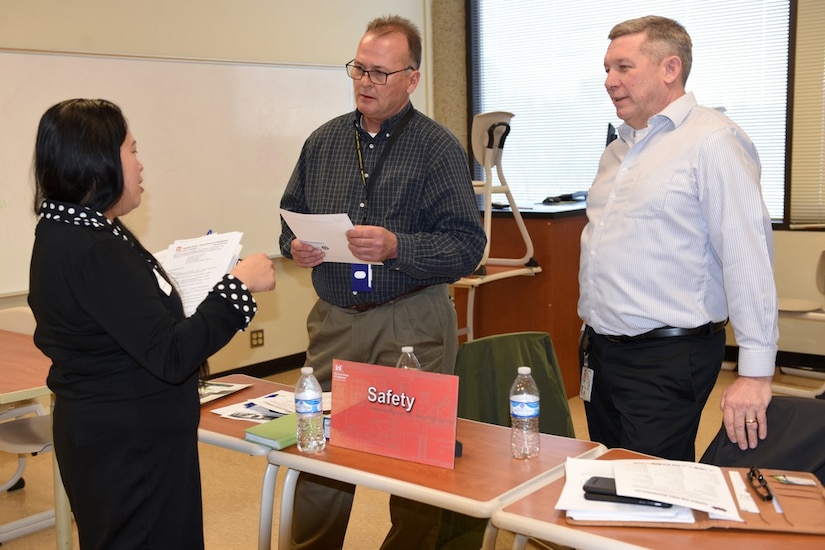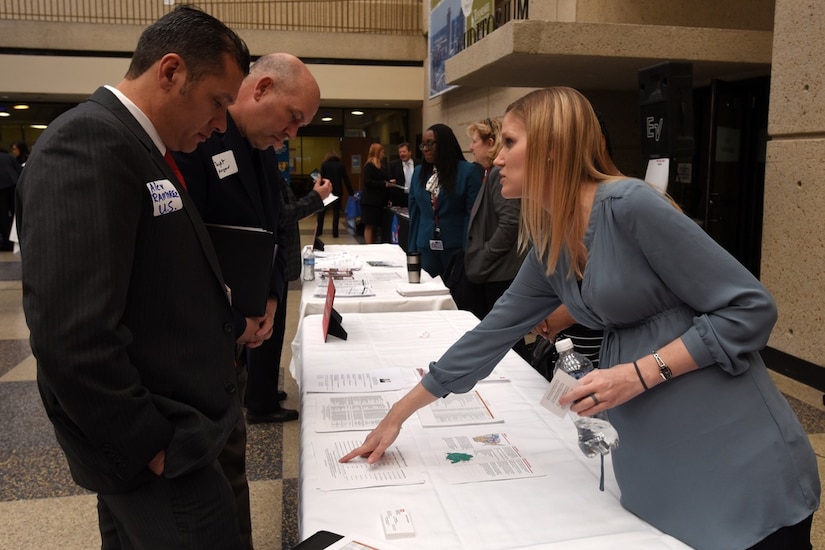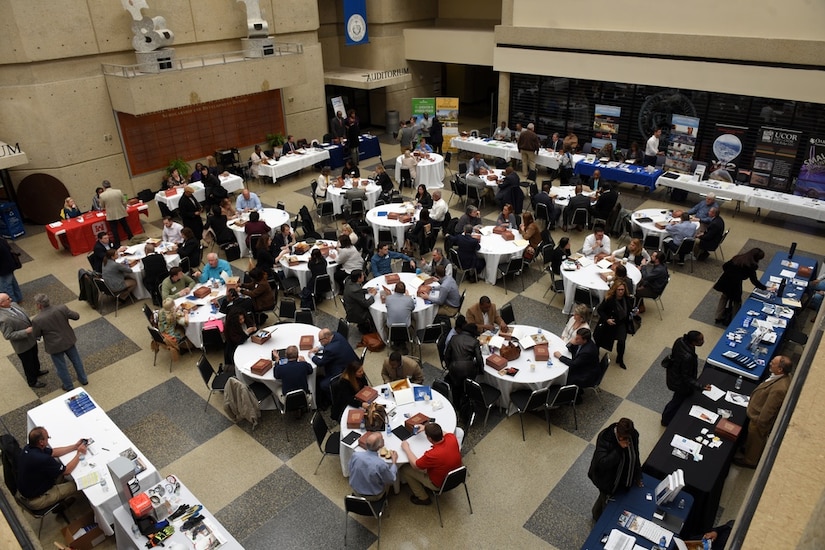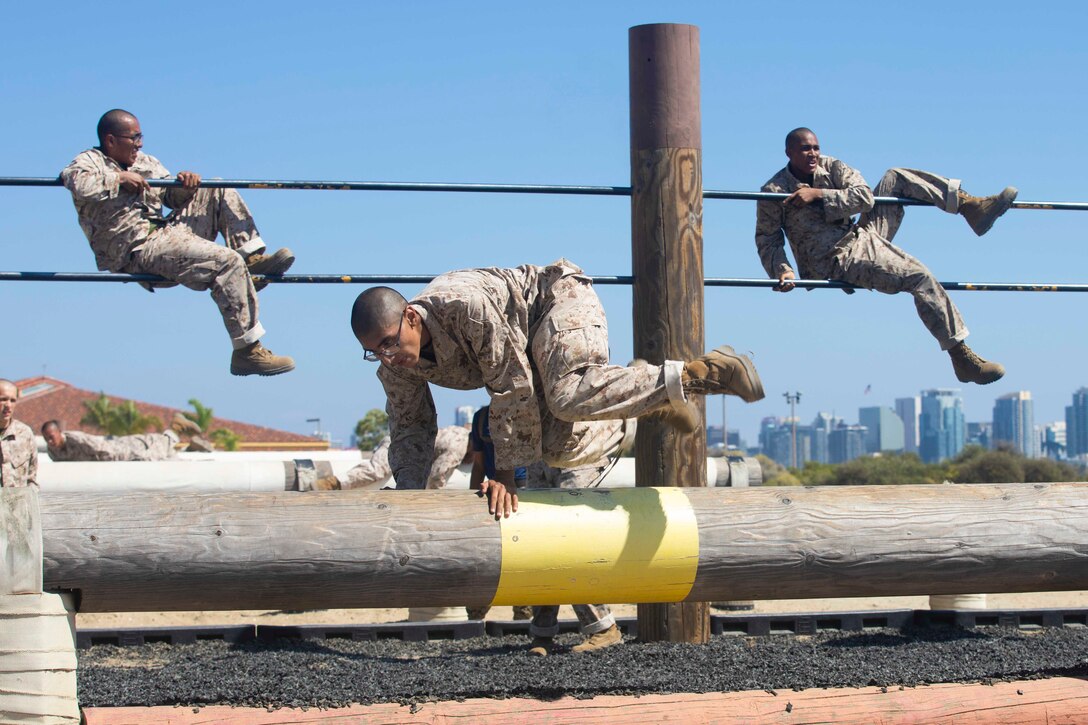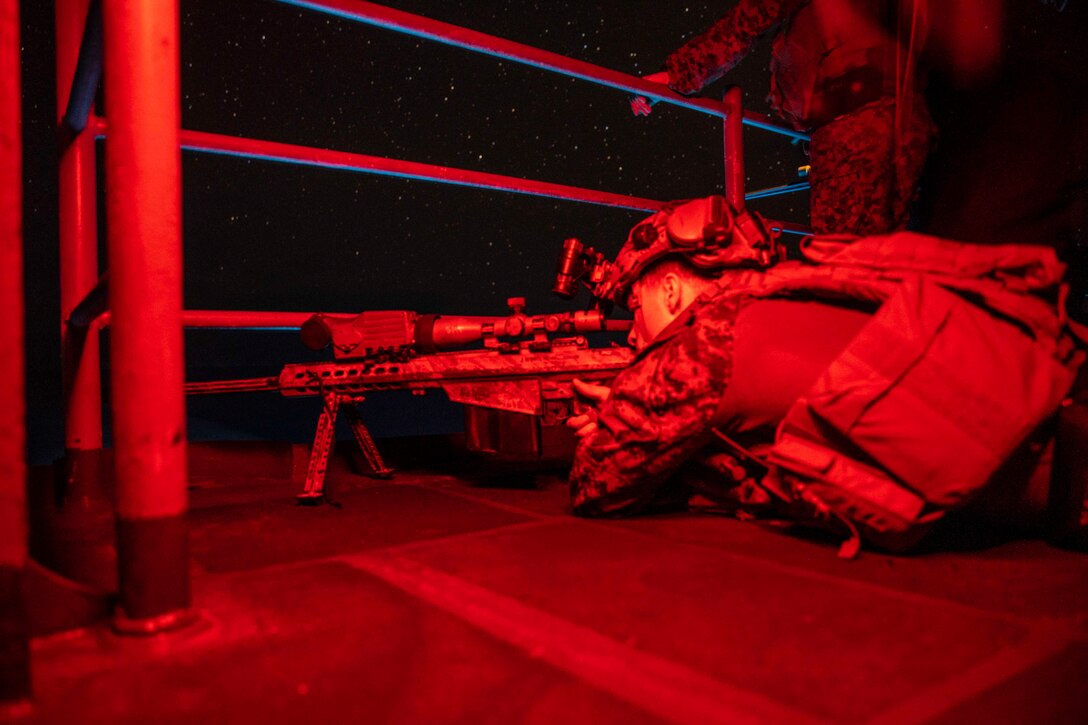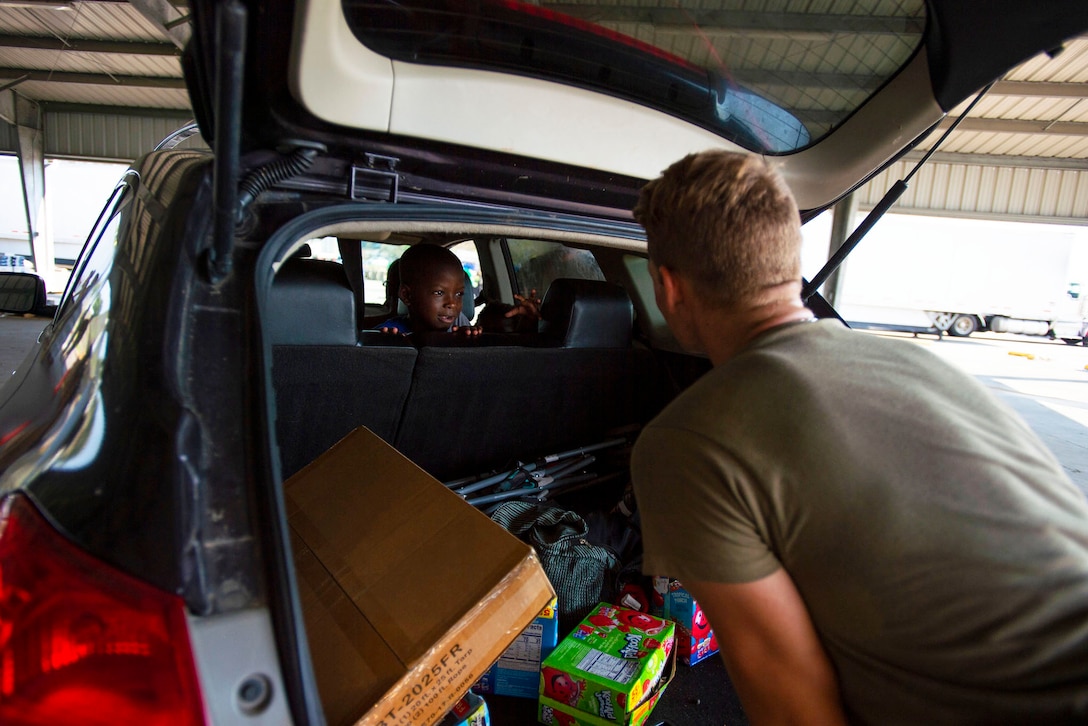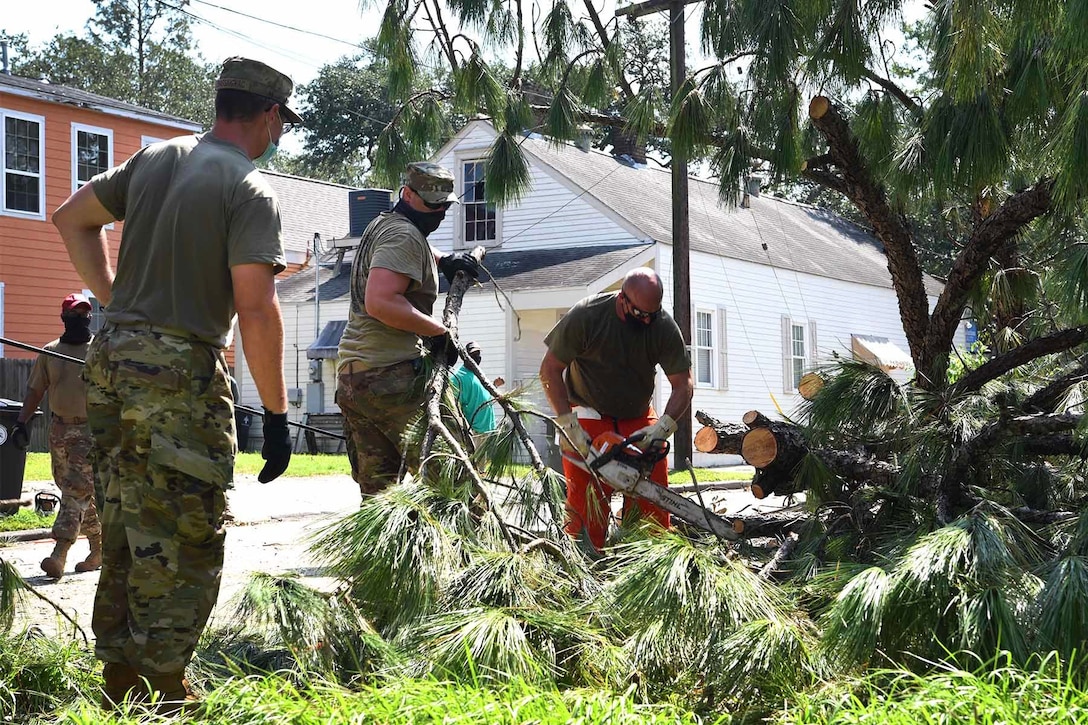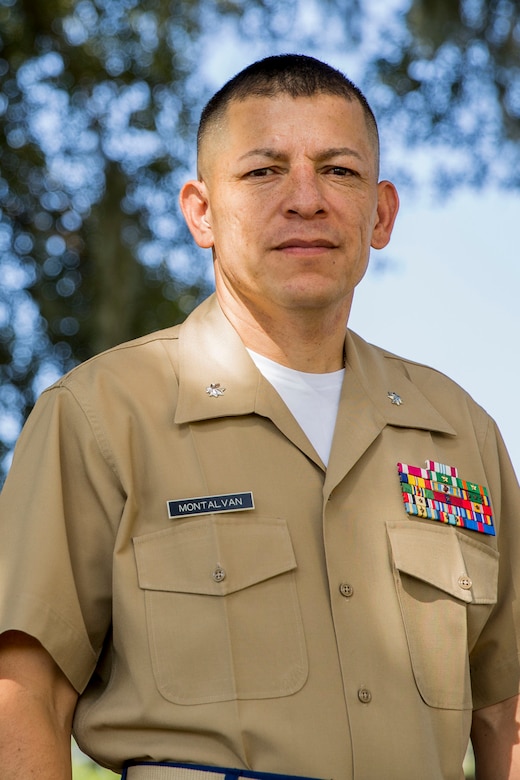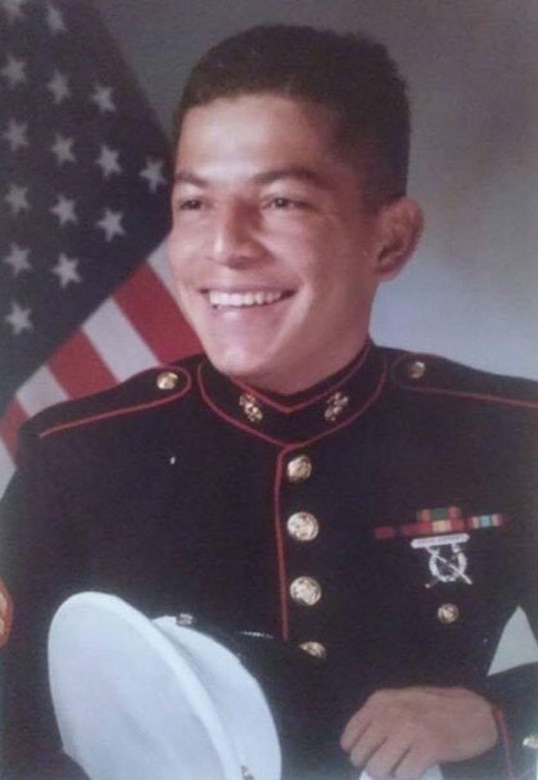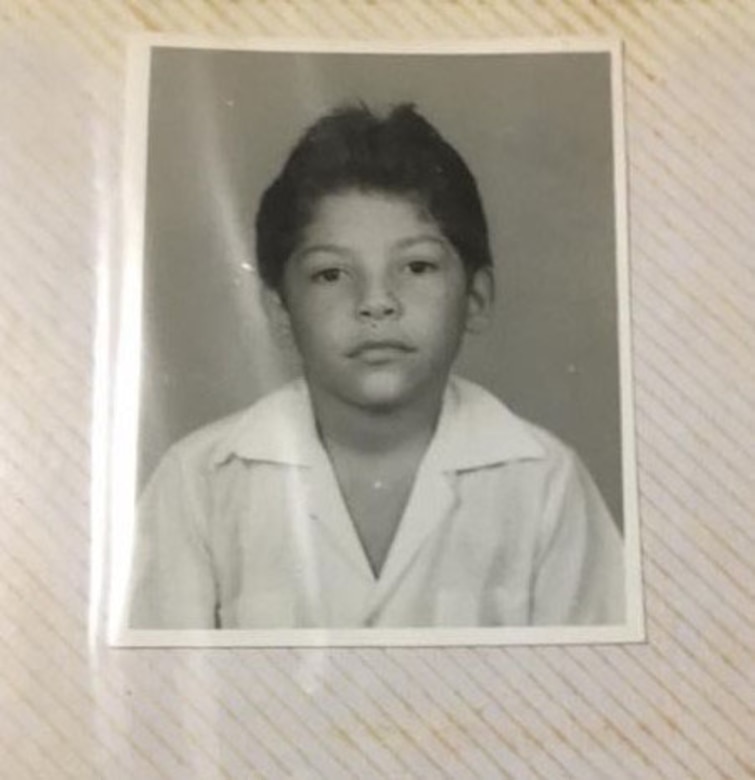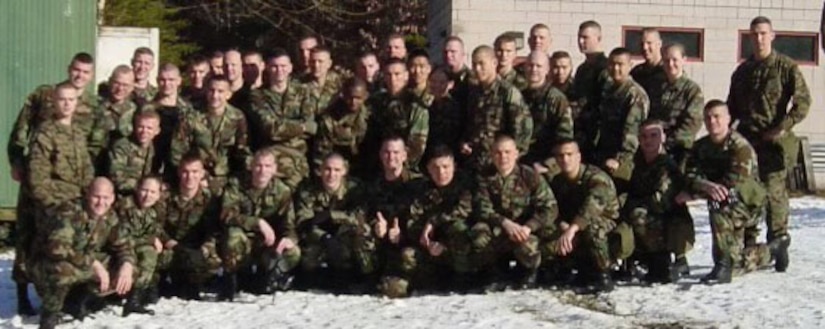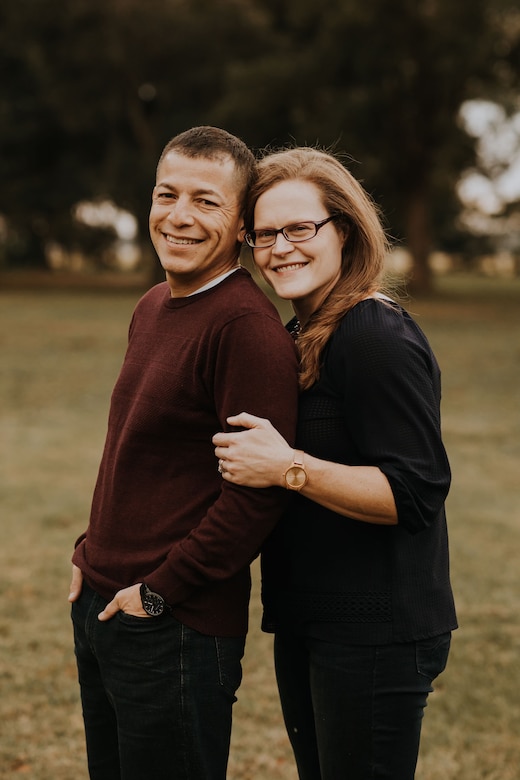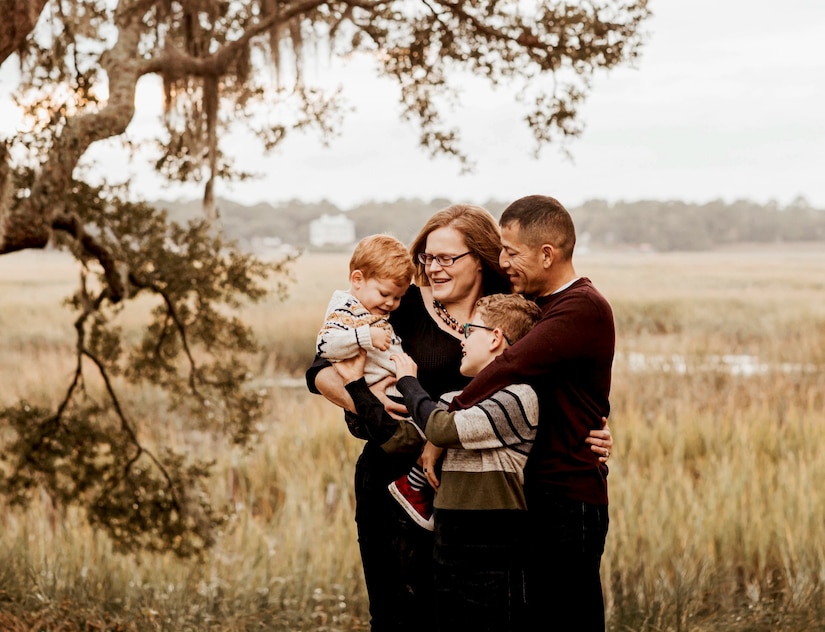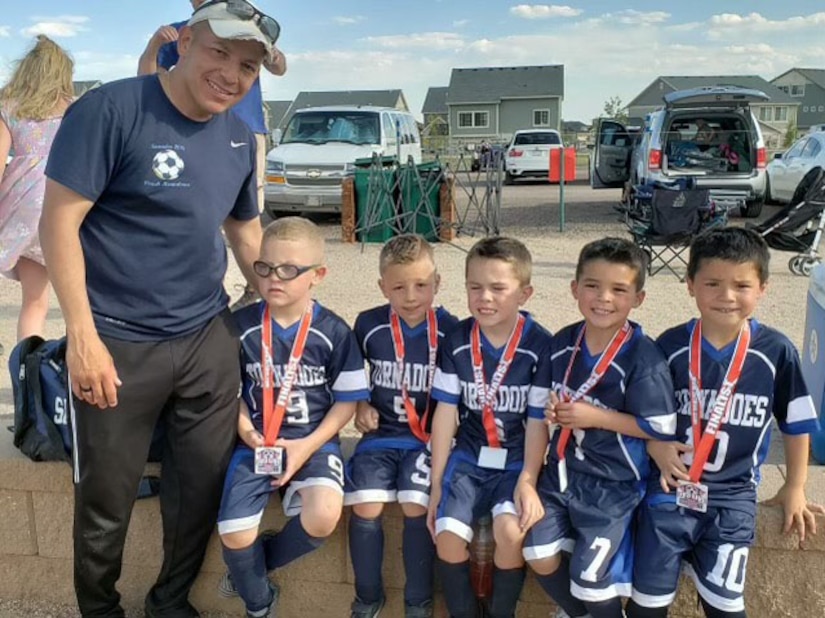Sept. 7, 2021
DEFENSE MINISTER AL ATTIYAH: (Via interpreter)
As-salamu alaikum. First off, I would like to welcome His Excellency
Secretary Blinken and His Excellency Secretary Austin. We always, when
we meet our colleagues from the United States of America, we discuss
about - we discuss our relations and how to improve them. Today we
spoke about Afghanistan and the humanitarian work, Afghanistan and the
evacuation, the technical aspects. Of course, the technical side is
rather complex. I will leave that to my colleague and brother Sheikh
Mohammed bin Abdulrahman. The floor is yours.
FOREIGN MINISTER AL THANI: (Via interpreter) Thank you, first of
all. I share my brother Dr. Khalid Al Attiyah, deputy prime minister
and minister of state for defense, in welcoming our colleague, His
Excellency Antony Blinken and His Excellency Lloyd Austin. Of course,
the state of Qatar and the United States of America have strategic
partnership for decades, and this is distinguishable by the fact that it
always continues and improves.
Today we discussed a few items on our agenda of mutual interest and
how to continue our work and our consultation, taking into account the
latest developments on the humanitarian level and the technical level.
We alluded to the evacuation of foreign nationals and Afghanis and to
help them to evacuate Kabul. We stressed on the importance of keeping
humanitarian corridors open and the freedom of movement from Afghanistan
to be secured, and we urge the Taliban to work with us to expedite this
process. We also talked about the airport, the Kabul airport and the
operations there, and the support the state of Qatar is providing in
this regard.
And we also discussed other issues, including the Palestinian
question. We emphasized the importance of continued support,
humanitarian support for our Palestinian brothers, and the importance of
working together to reach a peaceful solution based on the Arab peace
initiative and the two-state solution, which the state of Qatar always
emphasizes.
We have also discussed the mutual bilateral relations and the
strategic interest of both countries as a basis of discussing different
issues of mutual interest and how to develop our partnership and raise
it to higher levels. I thank you, Your Excellency Secretary Blinken and
Secretary Austin, for coming here to Doha, and we thank you for all
your support and the contributions that you've provided us regarding
consolidating peace and stability in the region. And we confirm the
partnership of our state of
Qatar with you and our continued work to consolidate this partnership.
SECRETARY BLINKEN: Let me start, first of all, by saying thank you
to his highness the emir for his wonderful hospitality and very good
meeting last night. And to Their Excellencies the Foreign Minister Al
Thani and Defense Minister Al Attiyah, thank you as well for hosting us
today and for the very good conversation and dialogue that we've had.
Secretary Austin and I are very pleased and, indeed, honored to be
here to express first and foremost our deep gratitude to the Qatari
people. Many countries have stepped up to help the evacuation and
relocation efforts in Afghan - in Afghanistan, but no country has done
more than Qatar. More than
58,000 people have transited through Doha - Americans at risk, Afghans
at risk, citizens of allied and partner nations. Qatar was the first
stop on a journey to a more peaceful and hopeful future for so many
people. You welcomed them with compassion and with generosity. When
problems arose,
Qatar worked hand in hand with us to address them. The men, women, and
children who transited through here will not forget what you did at a
pivotal moment in their lives. Neither will we.
I want to mention just a few examples of the substantial support -
the truly remarkable support - that Qatar has provided. In addition to
saying yes to tens of thousands of people transiting through here, you
provided lifesaving medical support, including field medical tents and
access to Al Wakrah Hospital, for the exclusive use of evacuees. You
served 10,000 meals three times a day at Al Udeid. You've established a
coordination cell at Camp As Sayliyah to help organize all of the NGOs
sending more supplies. And you provided 20 Qatari Airways flights to
fly thousands of people to the United
States and Germany, and you've offered 20 more. All told, this has been
a remarkable outpouring of support under incredibly challenging
circumstances and a powerful testament to the world of Qatar's
generosity and statesmanship.
It's not a coincidence that we've transferred our Afghanistan
diplomatic operations to Doha. As we carry forward our diplomacy here,
we know that Qatar will be our partner, because this is not the first
time that Qatar has stepped up to help in Afghanistan. For years, at
our request, you facilitated diplomacy between the Taliban and the
Afghan Government to try to bring the conflict to a peaceful
resolution. Now, in addition to being by our side, dealing with the
significant human needs that come from ending a war, you also continue
to keep working to keep open a pathway from Afghanistan to the rest of
the world. And in particular, we appreciate the diplomacy that Qatar
and Turkey are conducting to help get the airport in
Kabul up and running again.
On a related note, let me briefly address the topic of charter
flights, which has been on people's minds. Many thousands of U.S.
citizens, permanent residents, at-risk Afghans who we successfully
evacuated and relocated from Kabul have left aboard charter flights.
Now others are working to arrange more such flights. We're working
around the clock with NGOs, with members of Congress and advocacy
groups, providing any and all information and doing all we can to clear
any roadblocks that they've identified to make sure that charter flights
carrying Americans or others to whom we have a special responsibility
can depart Afghanistan safely. Without personnel on the ground, we can't
verify the accuracy of manifests, the identities of passengers, flight
plans, or aviation security protocols. So this is a challenge, but one
we are determined to work through. We're conducting a great deal of
diplomacy on this as we speak.
We've also been engaged with the Taliban on this topic, including in
recent hours. They've said that they will let people with travel
documents freely depart. We will hold them to that. So will dozens of
other countries. The international community is watching to see if the
Taliban will live up to their commitments.
There will certainly be more work to do together in the days to
come. Our two countries will continue to closely coordinate, as we have
for the past several weeks, to keep the relocation effort moving
forward as smoothly and as swiftly as possible. This is a complex
operation, as complex as any in recent memory, but I've got every
confidence we'll succeed at it because the partnership between Qatar and
the United States has never been stronger. And our countries will
continue, as we've heard, on a wide-ranging list of issues, a
wide-ranging dialogue and close cooperation, including on trade,
investment, defense, counterterrorism, human rights, cultural exchange,
humanitarian aid. The United States welcomes the al-Ula Accords and
supports continued efforts to bring our partners in the region closer
together.
The strongest relationship that we have and that we and Qatar have
built through this evacuation and relocation effort I know is going to
pay continued dividends across these and so many other key areas in the
months and years ahead. What Qatar has done here for Americans, for
Afghans, for citizens of many other countries will be remembered for a
long, long time. And so, on behalf of the American people, thank you.
SECRETARY AUSTIN: Thank you and let me add that I'm glad to be here
with my friend and colleague, Secretary Blinken. And let me say thanks
to my counterparts from Qatar for hosting us here today. It is our
great privilege to visit and to express our gratitude.
As Secretary Blinken said, Qatar's support for Operation Allies
Refuge was indispensable to the safe transit of Americans and U.S.
personnel, allies and partners, and Afghans at special risk. At a
critical and historic moment, Qatar went above and beyond, and your
generosity helped to save thousands of lives. I'm deeply proud that the
U.S. military, together with our partners, completed the largest
airlift in history, evacuating more than 124,000 people to safety. But
we could not have accomplished that without
Qatar's support, so again, thank you to the emir and to our colleagues for your help and for your friendship.
In fact, we're here today because our work together as partners and
friends continues, not only with Operation Allies Refuge but on many
shared priorities. The United States is grateful that Qatar continues
to host American troops to make sure that our forces are well-positioned
to support a range of critical missions in the region.
But our relationship goes deeper than just defense concerns. We're
working with our regional partners toward some important shared
objectives: to wind down conflicts, to provide humanitarian aid to
civilians in need, to de-escalate tensions, and to encourage dialogue.
We think that's the right way to ensure regional security and stability,
and we know that Qatar stands with us in advancing peace and security.
And you've provided humanitarian aid from Yemen to Gaza and worked to
facilitate Afghan peace negotiations.
But Iran's support for terrorism and its willingness to supply
increasingly lethal weapons to non-state group undermines the regional
stability that we all seek. So we're committed to working together to
enhance regional defenses against destabilizing actions, including
Iran's nuclear aspirations. Our force posture here in Central - the
Central Command area of responsibility helps us do that together, but,
of course, we'd prefer diplomacy succeed in reducing these tensions.
And let me close by saying how glad I am to be here in person to
underscore the importance of the U.S. relationship and friendship with
Qatar. The United States is committed to strengthening this partnership
and throughout our network of alliances and partnerships. Thank you
very much.
MODERATOR: (Via interpreter) Thank you, your excellencies. We start
the press conference. The first question comes from Al Jazeera
English.
QUESTION: Mohammad Jamjoom with Al Jazeera English. I have a
question for Sheikh Mohammed and a question for Secretary Blinken.
Sheikh Mohammed, there's great concern over the looming humanitarian
crisis in Afghanistan, so where do things stand today with regard to
fully reopening Hamid Karzai International Airport and getting more aid
in? And how closely will the U.S. be working and to achieve that?
And Secretary Blinken, when it comes to the humanitarian effort, the
WHO says that hundreds of medical facilities in Afghanistan are at risk
of imminent closure because Western donors who finance them are barred
from dealing with the new Taliban government. So what's the U.S. going
to do to try to ensure that humanitarian aid can be accessed in
Afghanistan?
FOREIGN MINISTER AL THANI: Well, regarding the status of Kabul
airport, as I have mentioned a few days ago, we have already dispatched
our teams there to provide technical assistance that's required to bring
the airport and make it up and running again. We have fixed a lot of
the elements which are over there, and we are about to get everything
operational very soon. Right now, we didn't reach yet an agreement on
the way how to manage or to run the airport, but yet we are continuing
the humanitarian support and we are chartering almost on a daily basis
flights with humanitarian aid and also receiving some flights from
different countries with humanitarian aid in order to ensure that the
humanitarian passage is open.
Our aim is to focus on helping people who want - especially foreign
nationals - who want to leave Afghanistan as soon as possible, and also
encouraging the UN agencies and the others, the other NGOs, to provide
help and support to Afghanistan. We have facilitated a few trips for UN
officials to - trying to reach an understanding with Taliban in order
not to interrupt their humanitarian operations in Afghanistan, and we
hope in the next few days we can get to a level where the airport is up
and running for passengers and for humanitarian aid as well.
SECRETARY BLINKEN: The United States has been the largest
humanitarian assistance provider to Afghanistan. The needs remain
great, and in fact, the situation for so many Afghans is stark. And
we're determined with the international community to continue to provide
humanitarian assistance to the Afghan people, and we can and will do
that working through partners, NGOs, the United Nations system, and do
it in a way that's consistent with the sanctions that remain in place on
Afghanistan.
We've issued a license in recent days to make sure that some of this
aid could be facilitated, and we're working very closely with the
international community and with these various partners to ensure that
assistance for the basic needs of the Afghan people, particularly when
it comes to food, when it comes to medicine, can continue. And going
forward, as we continue to work closely with our partners, with the rest
of the international community, we're going to make sure that we're
taking the steps necessary to continue to support assistance to people
who need it based on their needs.
MODERATOR: (Via interpreter) Next question is to CNN.
QUESTION: Sam Kiley, CNN. Sheikh Mohammed, following the
precipitous American withdrawal from Afghanistan, is America still
considered a reliable ally?
And to Secretary Blinken, how many Americans are stuck in Afghanistan
and how many SIV holders have you still got to get out? Can we get
some accuracy on those figures, please?
FOREIGN MINISTER AL THANI: Well, of course, the U.S. is our most
important ally. It has been - this relationship and partnership has
been there for decades. It's demonstrated its - our reliance on this
alliance between us and the United States in several occasions. The
U.S. has been a strong security partner to the state of Qatar, a strong
economic partner, a strong partner in the education, in all the fields.
I don't think that there is any correlation between what's happened in
Afghanistan and how the U.S. is looking at the region and the
partnership with the region, especially with the Gulf region.
From our perspective, that there was a war for 20 years and this war
has ended, and we hope that there is a better prospect for the future in
Afghanistan. As a facilitator and mediator in this process, we have
the support the day after the withdrawal of the U.S. forces, supporting
it by building a strong, coherent country, inclusive - that have an
inclusive government that has the basic rights for the Afghan people.
So I think we are sharing the same objective for Afghanistan to have a
better future, and we will continue this partnership throughout the
region and beyond that region, working together hand-in-hand with the
U.S.
SECRETARY BLINKEN: And just to add on to my friend's comments, I
think one mistake that is often made is to somehow equate our engagement
in anything we're working on with the number of American boots we have
on the ground in uniform. We have a much broader definition of what
engagement means, and it covers the vast array of issues, including many
issues that we're working on together with Qatar, be they security, be
they economic, be they people-to-people ties, be they education, working
on climate change, dealing with COVID-19. And in all of those areas
and more, I would suggest that our engagement is deeper than it's ever
been. And that's also evidenced by the wide-ranging conversations we've
had here today with our friends and partners on Afghanistan but also on
many, many other issues.
With regard to American citizens in Afghanistan, a few things here.
First, just to step back for a minute, going back to March of this year,
we issued 19 separate messages to Americans registered with the embassy
encouraging them and then urging them to leave Afghanistan given the
security situation.
Again, that goes back to March. By the time the evacuation commenced in
August, we believe there were somewhere in the vicinity of 6,000
American citizens in Afghanistan, and virtually all of them were
evacuated in those couple of weeks that we were working out of Kabul
International Airport.
But it's not surprising that despite the situation, despite the long
encouragement of people to leave, that some people did not or could not
make a decision to do so, in part because this is such an incredibly
wrenching decision, because for these people, they are for the most part
people who've been in Afghanistan for years, decades, possibly even
generations. For them, Afghanistan is home; their extended families are
there, and making that decision is extraordinarily hard.
So at this point we believe the number of those who have American
citizenship, many of them dual-nationals, who remain in Afghanistan is
somewhere around a hundred. We're in direct contact with virtually all
of them. We have case management teams assigned to them to make sure
that those who want to leave can, in fact, do so.
And as my colleagues have said, we're holding the Taliban to the
commitments that they've made to ensure the free passage and safe travel
for anyone who wants to leave Afghanistan, starting with any American
citizens who wish to do so; Afghans who worked for us, including the
Special Immigrant Visa applicants or visa holders; other Afghans at
risk. And the entire international community is looking to the Taliban
to uphold that commitment, a commitment that's now been enshrined in
terms of an expectation from the international community in a United
Nations Security Council resolution as well as in a declaration signed
by more than a hundred countries around the world.
With regard to the Special Immigrant Visa applicants or visa holders,
as you know, first we had a program that we inherited that was,
unfortunately, in a stall. About 17,000 people were in the pipeline at
the beginning of this past year, and we worked very aggressively to
start to move the program forward again. Interviews for visas had not
taken place in Kabul going back to March of 2020. We restarted them in
February. President Biden issued an executive order - one of the first
executive orders he issued - in early February calling for an immediate
re-examination of the program to see how it could be made faster and
more effective.
And we instituted a series of changes to do just that throughout the
spring, including quadrupling the number of staff working on Special
Immigrant Visas. In Washington, I assigned an additional 50 people to
that effort, doubling the staff working on it in Kabul. And despite
COVID, including a spike in COVID that really put a dent in operations
in the June and early July period, we went from issuing about a hundred
visas a week to nearly a thousand a week by August. And we cut the time
in processing the applications for SIVs in half.
Nonetheless, the program was never designed for an emergency
evacuation. It includes 14 steps required by Congress that we have to
work through with many, many other agencies. And so despite our efforts
to move as fast as we could and to make it more efficient, as I said,
once we hit an emergency evacuation system - situation, the program was
not designed for that.
Now, as to the number of SIV applicants who have gotten out of
Afghanistan, those that remain, we're working on getting numbers right
now. So many of the people who have left remain in transit, moving from
the so-called lily pad countries toward the United States. In our
effort to get as many people out as fast as we can while we had the
airport functioning, we focused on doing just that, and we're doing
accountings on the back end as people arrive in the United States.
So my expectation is we will have a breakdown of the numbers of
people who left Afghanistan, including not just American citizens but
green card holders, SIV applicants, SIV visa holders, Afghans at risk,
those eligible for P-1 and P-2 visas - all of that will be forthcoming
in the days and weeks ahead as we're able to break down the numbers.
But I can say this: Of the 125,000 people or so who were evacuated from
Afghanistan, the overwhelming majority were Afghans and Afghans at risk
in one way or another, and so some significant number of that will
almost certainly wind up being SIVs, SIV applicants, those eligible for
the SIV program. And when we have a full accounting, we'll make it
available.
MR PRICE: Our first question goes to Christina Ruffini, CBS.
QUESTION: Good afternoon, gentlemen. Secretary Blinken, regarding
the charter flights, aid groups and members of Congress say the Taliban
is essentially holding these flights hostage and not allowing them to
leave in order to get more out of the American Government. Is that
accurate? Are you aware of American citizens trying to evacuate on
these flights? Is the
State Department at all hindering the overall effort to get charters in
or out of Afghanistan? And what channel was used for discussion with
the Taliban on this issue, and what did you tell them to do?
And Sheikh Mohammed, as the Secretary mentioned, more than 58,000
people have evacuated through your country, but many of them don't have
paperwork, visas for onward countries, et cetera. How - has the U.S.
presented a concrete plan on how to process these individuals? And how
long do you expect some of these undocumented evacuees to remain in your
country?
And Secretary Austin, knowing what we know now, do you consider the
U.S. withdrawal from Afghanistan a success? Thank you, gentlemen.
SECRETARY BLINKEN: Thank you. So, as noted, we are working around
the clock to help U.S. citizens, to help lawful permanent residents, to
help at-risk Afghans to whom we have a special commitment depart
Afghanistan if they so choose. And we've successfully done that
already, and we're in continuous contact with American citizens who
remain in Afghanistan. For weeks now we've been working very closely
with Qatar, with Turkey, to see to it that the Kabul airport could get
up and running again to civilian air travel as soon as possible, and
we're also working to facilitate overland passage for those who wish to
depart.
When it comes to charters - and I addressed this a short while ago –
we facilitated safe evacuation and relocation of thousands of these
individuals, first aboard the charter flights that left from Hamid
Karzai
International Airport under the well-known difficult and dangerous
conditions that we were operating. Now, of course, we don't have
personnel on the ground in Afghanistan, whether it's in Kabul or whether
it's up north in Mazer-e-Sharif. We don't have the means to verify the
accuracy of manifests, the identity of passengers onboard these planes,
aviation security protocols, or where they plan to land, among other
issues. And these raise real concerns, but we are working through each
and every one in close coordination with the various initiatives and
charter flights that are seeking to evacuate people. But I just want to
emphasize that there are a lot of issues to work through.
We continue to engage. We're engaging as we speak to resolve these
issues and, indeed, to hold the Taliban to its pledge to let people with
travel documents, including American citizens, freely depart
Afghanistan. And we've reiterated this point directly to the Taliban in
recent hours. As with any commitment the Taliban makes, we're focused
on what they do, not just on what they say. But this, of course, is not
just us; it's the entire international community.
On these charter flights, as I mentioned, one of the challenges has
been that, as we understand it, there are groups of people who are
grouped together, some of whom have the appropriate travel documents -
an American passport, a green card, a visa - and others do not. And
it's my understanding that the Taliban has not denied exit to anyone
holding a valid document, but they have said that those without valid
documents at this point can't leave. But because all of these people
are grouped together, that's meant that flights have not been allowed to
go. We've been able to identify a relatively small number of Americans
who we believe are seeking to depart from Mazar-e-Sharif with their
families.
We have been assured, again, that all American citizens and Afghan
citizens with valid travel documents will be allowed to leave. And
again, we intend to hold the Taliban to that. They've upheld that
commitment in at least one instance in the last 24 hours with a family
that was able to leave through an overland route, and we are not aware
of anyone being held on an aircraft or any hostage-like situation in
Mazar-e-Sharif. So we have to work through the different requirements,
and that's exactly what we're doing.
FOREIGN MINISTER AL THANI: Thank you. Regarding your question about
how we are dealing with the undocumented evacuees, of course, we have
coordinated efforts in advance and ahead of time between Qatar and the
U.S. to start receiving the evacuees at transit points at the
beginning. And given the nature and also the timing of the evacuation,
there were some undocumented evacuees who landed here in Doha, but the
process is being done for them, and it was done in a very good
coordination and cooperation between our people here in Doha and the
U.S. officials who are represented here to deal with the evacuation
process.
Actually, the number of people who have been evacuated through Doha
is around 58,000, yet most of them has already reached their
destinations, and right now we have approximately around 4,000 who are
already in the process to be also transferred to a third country. But
the entire framework has been agreed between Qatar and the U.S. in
advance before this evacuation started, and we were expecting some
challenges to that would come up given the nature of and also the
emergency of that evacuation.
SECRETARY AUSTIN: So what happened in the post-drawdown is something
that I think will be studied very carefully in the weeks and months
ahead, and I won't try to diagram that here. What I will tell you is
that I'm absolutely proud of the tremendous work that our brave
servicemen and women did as we evacuated 124,000 people from the Kabul
airport in a very short period of time under some very, very dangerous
and difficult circumstances. I'd also say that no operation is ever
perfect. There are lessons to be learned. And what we'll do is what we
always do in the military, is conduct an after-action review, take a
look at ourselves, take a look at what we did, what could have been done
better.
MR PRICE: (Inaudible.)
QUESTION: Secretary Austin, over the past few weeks, the U.S. was
unable to see emerging threats from the Taliban in Afghanistan, even
with ground forces and a 20-year presence. More recently, we've heard
from General Milley that he believes that there are emergent threats
coming from Afghanistan such as terrorism threats, ones that could pose a
threat to the United States. And so my question is: Now, with no
troops and no ground-based intelligence in Afghanistan, how will the
U.S. be able to conduct and stop - conduct operations and stop terrorism
threats with only over-the-horizon capabilities?
And Sheikh Mohammed, I'd like to follow up on something you said
earlier. You mentioned that you anticipate flights coming out of Hamid
Karzai International Airport within days. Could you give us a sense of
what specifically you expect to see in the coming days? And when can we
expect to see commercial flights coming out of that airport? Thank
you.
SECRETARY AUSTIN: Well, there's no question that it will be more
difficult to identify and engage threats that emanate from the region,
but we're committed to making sure that threats are not allowed to
develop and create significant challenges for us in the homeland. We
already have robust capabilities in the region. We look to improve them
on a daily basis and we're going to continue to do that.
And I would just say, Nancy, that we've come a long way in the last
20 years in terms of the development of our capabilities. And I would
further say that there isn't a scrap of earth that we can't reach out
and touch when we need to. We've demonstrated that time and time
again. And again, our job is to make sure we stay vigilant and continue
to develop capabilities.
FOREIGN MINISTER AL THANI: Well, regarding our expectations on Hamid
Karzai Airport, actually, now what has been fixed is already making the
airport capable to receive charter flights and we are starting the
humanitarian aid flights as a test and as a pilot for that. But also we
have highlighted earlier that there are certain standards need to be
met, especially from security perspective, security point of view toward
to board passengers on those flights. Those need an agreement with
Taliban, which is still in negotiation.
Regarding the airport to be opened to commercial international
flights, we believe that given the current status of the airport, it
will be able to receive them for maybe during a limited time in the day
but will need an upgrade in some of the equipment which will make it
more capable to run as an international standard airport. But I always
highlight on the importance of the security measures. If we can get the
security measures in place and agree on them with Taliban, then things
will be easier and we can achieve these goals as soon as possible.
